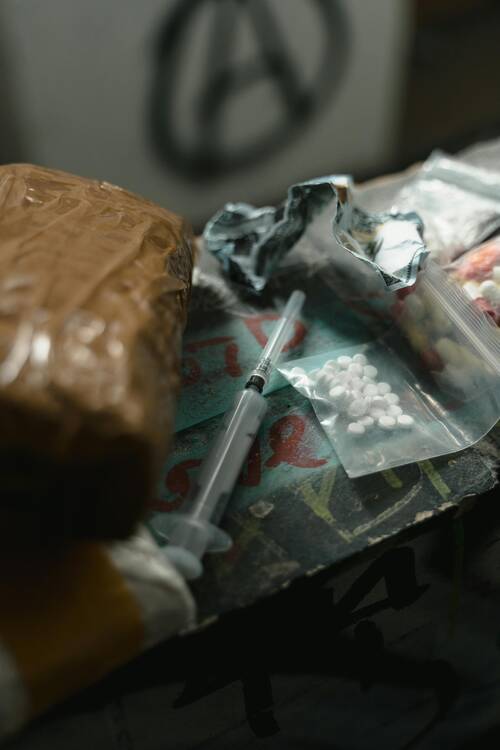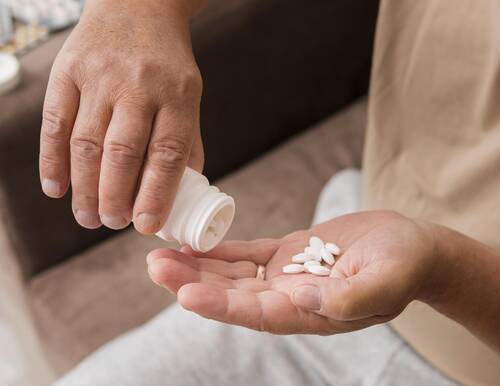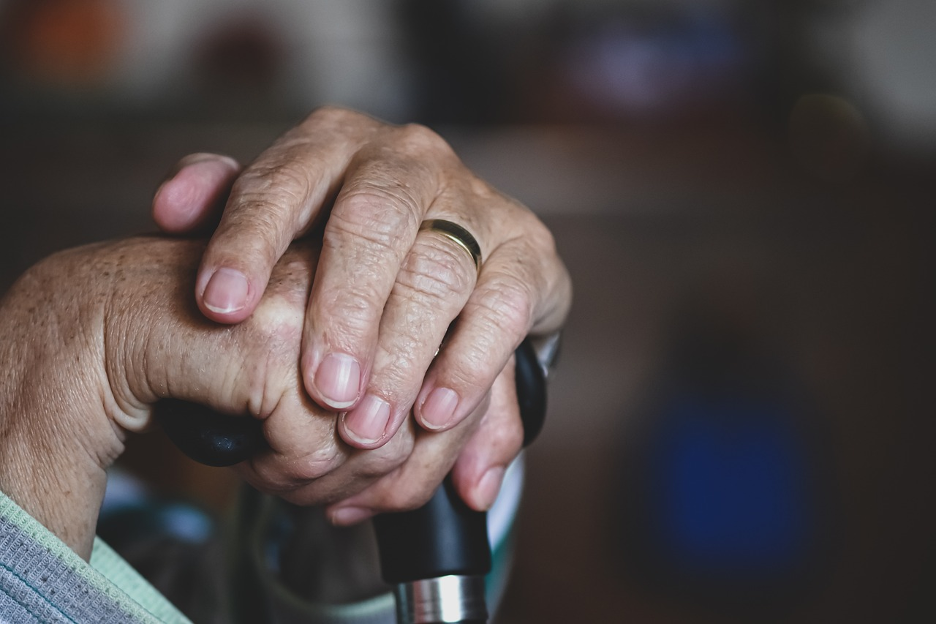Building a Support System for Successful Rehab and Recovery
- Accountability – Your support system helps you stay true to your recovery goals by keeping you on track.
- Encouragement – Positive reinforcement can push you through tough times, reminding you why you started this journey.
- Emotional resilience – Supportive relationships provide a safe space to express fears, doubts, and triumphs.
- Practical help – Whether it’s attending appointments, providing a listening ear, or helping you establish a routine, your network can assist in concrete ways.
- A sense of belonging – Feeling connected to others who care about your success reduces loneliness and strengthens your resolve.
Post-Acute Withdrawal Syndrome (PAWS): What to Expect After Detox
What to Know About the Detoxing From Drug and Alcohol Dependence
Detoxing from addictive substances is a critical initial step in recovery from drug and alcohol dependence. During this stage, the body begins to clear itself of toxins, but the process can come with a range of intense withdrawal symptoms. Understanding these symptoms—and how they evolve from the acute to the post-acute phase—can help individuals prepare for the detox journey and know when to seek help.
Common Withdrawal Symptoms
The acute withdrawal phase typically occurs within hours to days after ceasing substance use and often includes severe physical and psychological symptoms as the body struggles to adapt without the substance. During this phase, common withdrawal symptoms include:- Anxiety and panic attacks: Heightened anxiety levels and even panic attacks are common as the central nervous system adjusts to the absence of the substance.
- Nausea and Vomiting: These symptoms often accompany withdrawal, especially for those dependent on opioids and alcohol.
- Sweating and Shaking: As the body tries to restore balance, sweating and shaking can be intense, particularly for individuals detoxing from alcohol or benzodiazepines.
- Muscle Aches: Body aches and muscle cramps may occur as the body adjusts to functioning without the substance.
- Insomnia or Impaired Sleep: Insomnia is common, with some individuals experiencing vivid dreams or night sweats as their sleep cycles are disrupted.
While these acute withdrawal symptoms generally subside within a week, recovery is rarely immediate. Instead, individuals often transition into a post acute withdrawal period, where symptoms like mood swings, fatigue, and cravings may persist for months, creating what is known as a protracted withdrawal experience. (more…)
The Connection Between Sobriety and Mental Health: A Supportive Guide
Sobriety not only affects your mind but also your entire body. When an individual stops using substances like drugs and...
Cultivating Supportive Communities: The Power of Group Meetings in Personal Recovery
- Introduction to Group Meetings
- The Role of Peer Support in Recovery
- Benefits of Sharing Personal Experiences
- Strategies for Building Trust in Group Settings
- Conclusion: The Lasting Impact of Community Support
Struggling with Addiction? Here’s Why Minority Groups Need a Special Kind of Care
Ready to Break Free? Here’s What to Look for in a Rehab Center
Breaking the Barriers of Stigma in Opioid Addiction Recovery
Understanding Stigma in Opioid Addiction
Stigma can be defined as a set of negative beliefs or attitudes directed toward a particular group of people. In the context of opioid addiction, it often revolves around misconceptions that individuals suffering from OUD are morally flawed, weak-willed, or choosing to engage in substance use. These harmful stereotypes perpetuate a culture of shame and silence, discouraging people from seeking help for fear of being judged or ostracized. The stigma around opioid addiction is fueled by various factors. Historically, addiction was viewed as a moral failing or criminal behavior rather than a medical condition. This perception persists, even though extensive research has shown that opioid addiction is a chronic brain disease influenced by genetics, environment, and mental health. Additionally, sensationalized media coverage of drug-related crimes and overdose deaths further reinforces negative stereotypes, casting individuals with OUD in a criminalized light. (more…)Why Older Adults are Using Drugs to Excess and How We Can Help Them
 Most news stories tend to focus on how drugs and the opioid epidemic are impacting people in their teens and early adulthood. However, I can tell you from personal experience, that there are a lot of older adults who are also abusing drugs alcohol at record rates. This is borne out at our family’s drug treatment program which I founded and run in San Diego, California.
You may be surprised to hear that the rates of opioid overdose in the U.S. have increased the most among people ages 65 and up (from 2021 to 2022) and that older adults have seen the greatest increase in cannabis use in Canada. One thing you also may not realize is that older adults have the highest recovery rates of all age groups.
(more…)
Most news stories tend to focus on how drugs and the opioid epidemic are impacting people in their teens and early adulthood. However, I can tell you from personal experience, that there are a lot of older adults who are also abusing drugs alcohol at record rates. This is borne out at our family’s drug treatment program which I founded and run in San Diego, California.
You may be surprised to hear that the rates of opioid overdose in the U.S. have increased the most among people ages 65 and up (from 2021 to 2022) and that older adults have seen the greatest increase in cannabis use in Canada. One thing you also may not realize is that older adults have the highest recovery rates of all age groups.
(more…)Understanding the Journey of Recovery from Drug Addiction
 Recovery from drug addiction is a complex, non-linear process that extends beyond just stopping substance use. It involves a comprehensive lifestyle change, addressing both psychological and physiological aspects of addiction. Therapy and counseling are crucial for uncovering and tackling the underlying issues that contributed to substance use, helping individuals develop healthy coping strategies and avoid relapse.
The journey often begins with detoxification, where the body cleanses itself of substances. A luxury rehab in Hawaii can provide a supportive, serene environment during this challenging phase. Recovery requires patience and self-compassion, with each day of sobriety representing progress towards a healthier, more fulfilling life. Celebrating small victories and staying resilient are key to navigating the path to recovery.
Recovery from drug addiction is often described as a journey rather than a destination. It involves several stages, including:
Recovery from drug addiction is a complex, non-linear process that extends beyond just stopping substance use. It involves a comprehensive lifestyle change, addressing both psychological and physiological aspects of addiction. Therapy and counseling are crucial for uncovering and tackling the underlying issues that contributed to substance use, helping individuals develop healthy coping strategies and avoid relapse.
The journey often begins with detoxification, where the body cleanses itself of substances. A luxury rehab in Hawaii can provide a supportive, serene environment during this challenging phase. Recovery requires patience and self-compassion, with each day of sobriety representing progress towards a healthier, more fulfilling life. Celebrating small victories and staying resilient are key to navigating the path to recovery.
Recovery from drug addiction is often described as a journey rather than a destination. It involves several stages, including:
- Acknowledgment: The first step is recognizing the problem and understanding the impact of addiction on your life and those around you.
- Seeking Help: Many individuals benefit from professional help, which may include therapy, counseling, or rehabilitation programs.
- Detoxification: This process allows the body to rid itself of drugs. It can be physically and emotionally taxing, requiring medical supervision in some cases.
- Rehabilitation: This phase focuses on building coping mechanisms and developing strategies to avoid relapse.
- Aftercare: Maintaining sobriety involves ongoing support and continuous self-improvement.
Healing the Mind and Body: The First Steps in Recovery
 Recovery from addiction signifies more than abstinence; it's a comprehensive transformation of mind and body. The initial phase prioritizes physical stabilization, ensuring individuals emerge from the shadow of substance dependence. This first step lays the groundwork for reclaiming control over one’s health and well-being.
(more…)
Recovery from addiction signifies more than abstinence; it's a comprehensive transformation of mind and body. The initial phase prioritizes physical stabilization, ensuring individuals emerge from the shadow of substance dependence. This first step lays the groundwork for reclaiming control over one’s health and well-being.
(more…)Moving Forward After Overcoming Alcohol Addiction
Embracing a New Chapter: The Journey Beyond Alcohol Dependency
 Breaking free from alcohol’s hold brings a new sense of freedom, allowing individuals to rediscover old passions and interests. Celebrating every small victory is crucial, as is recognizing the immense effort required to stay sober. Support from loved ones and professionals plays a significant role in this journey, providing essential encouragement and guidance.
Transitioning from a luxury alcohol rehab to daily life involves building a stable routine that supports sobriety. Engaging in regular exercise, exploring creative activities, and maintaining good sleep habits help create a sense of normalcy. As life changes, developing effective coping mechanisms for stress and being patient with oneself are vital for navigating this ongoing journey toward lasting recovery.
(more…)
Breaking free from alcohol’s hold brings a new sense of freedom, allowing individuals to rediscover old passions and interests. Celebrating every small victory is crucial, as is recognizing the immense effort required to stay sober. Support from loved ones and professionals plays a significant role in this journey, providing essential encouragement and guidance.
Transitioning from a luxury alcohol rehab to daily life involves building a stable routine that supports sobriety. Engaging in regular exercise, exploring creative activities, and maintaining good sleep habits help create a sense of normalcy. As life changes, developing effective coping mechanisms for stress and being patient with oneself are vital for navigating this ongoing journey toward lasting recovery.
(more…)Inpatient Rehab: Could This Be the Game-Changer for Your Recovery?
What Is Inpatient Rehab?
Inpatient rehab at one of the leading Ventura California drug rehabs is an intensive, round-the-clock treatment program where patients stay at a facility for a set period, usually anywhere from 30 to 90 days or longer. During this time, you’ll receive personalized medical care, therapy, and support to help you overcome addiction or recover from a health condition. Unlike outpatient programs where you return home each day, inpatient rehab requires you to live at the treatment center, providing a fully immersive environment focused entirely on recovery.Key Benefits of Inpatient Rehab
- 24/7 Medical Support – With inpatient care, medical professionals are available around the clock. This is especially important if you're dealing with physical withdrawal symptoms or need ongoing medical supervision.
- Structured Environment – A strict daily schedule can help eliminate distractions and temptations, giving you the space to focus on recovery.
- Intensive Therapy – Inpatient programs provide more therapy hours, offering individual counseling, group therapy, and holistic treatments like meditation or exercise.
Medical detox helps manage withdrawal symptoms safely. Start your recovery journey with professional care and support for long-term effects...
Rehabilitation Trends Empowering Home Care for Recovering Patients
The Rise of Home-Based Rehabilitation
Why Home Care is Gaining Popularity
The appeal of home-based recovery goes beyond comfort - it is also about the psychological benefits. Home is where people feel most relaxed and supported, which can accelerate the healing process. Studies have shown that lower stress levels, often experienced at home, contribute to faster recovery. The ability to maintain daily routines in a familiar environment provides both physical and emotional comfort, motivating patients to stick with their recovery plans.Impact of COVID-19 on Home Rehabilitation
The COVID-19 pandemic accelerated the shift towards home-based care. With hospitals under strain and concerns about exposure to the virus, many turned to home care as a safer option. This shift highlighted that with the right support and equipment, such as a rotating bed is a lifesaver for those with limited mobility, effective rehabilitation can indeed happen at home. Telehealth services have played a crucial role in this transition, allowing patients to consult with healthcare providers remotely. This not only reduces the risk of infection but also offers the flexibility to receive care at convenient times, making home recovery more accessible. (more…)- Key Takeaways
- The Importance of Community in Recovery
- The Power of Sharing Journeys
- Leveraging Virtual Gatherings for Support
- The Enduring Benefits of Mentorship
- The Support of Personal Networks
- Engaging in Community Events
- Support systems are crucial for both the process of healing and individual growth.
- Building and maintaining online and offline community connections can provide a balanced support system.
- Engagement with various support structures, including mentorships and personal relationships, fosters recovery and growth.
Healing Faster: Breakthroughs in Recovery from Personal Injuries
 Understanding the Latest Diagnostic Tools Enhancing Personal Injury Recovery
In the realm of personal injury recovery, precision in diagnosis is key. Advanced imaging techniques such as High-definition fiber tractography (HDFT) now allow for a superior visualization of neural pathways. Medical pros can pinpoint where you’re hurt with such precision, crafting a rehab plan that fits just right.
Thanks to biomarker technology, figuring out how long recovery will take has gotten a whole lot smarter. Imagine doctors using clues from your body’s own building blocks—genes and proteins—to create a recovery plan that’s all about you. It means less wondering, “Will this work?” and more knowing it will help stitch things back together quickly.
(more…)
Understanding the Latest Diagnostic Tools Enhancing Personal Injury Recovery
In the realm of personal injury recovery, precision in diagnosis is key. Advanced imaging techniques such as High-definition fiber tractography (HDFT) now allow for a superior visualization of neural pathways. Medical pros can pinpoint where you’re hurt with such precision, crafting a rehab plan that fits just right.
Thanks to biomarker technology, figuring out how long recovery will take has gotten a whole lot smarter. Imagine doctors using clues from your body’s own building blocks—genes and proteins—to create a recovery plan that’s all about you. It means less wondering, “Will this work?” and more knowing it will help stitch things back together quickly.
(more…)Anyone who has fought to overcome an addiction knows how challenging doing so can be. However, men and women who...
The Secret to Maintaining a Healthy Social Life After Deciding to Quit Drinking
Latest Research Shows Need For Improved Long-Term Addiction Solutions
A recent study from Services for the UnderServed found that between 37 and 56 percent of patients transitioning from residential...




















